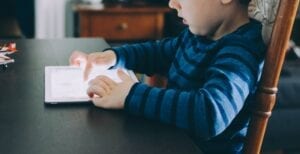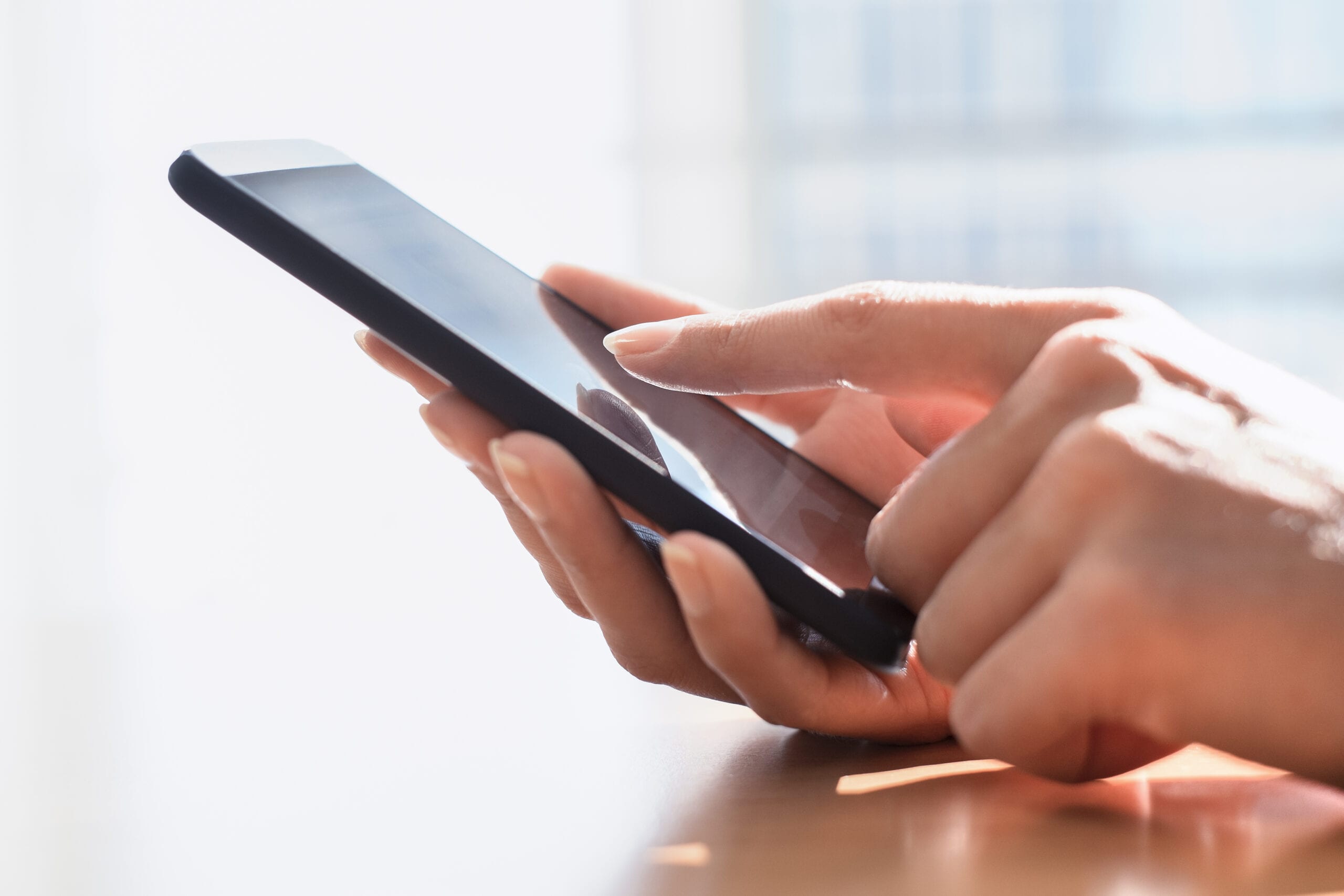It’s already October of 2020 and it seems like each month brings a new challenge for parents this year. By now, many children are “back” in school. School this year looks a little different across the country with many kids doing virtual learning and joining their classrooms through Zoom. If your family is anything like mine, the first week back was a huge adjustment. If like our family, you’ve adjusted to your new life, you may be wondering how the screens are impacting your child’s sleep.
Blue Light Effects on Melatonin Production
According to a study done by Harvard Health, blue light produced by screen electronics suppresses your production of melatonin more than any other light. In one study they found that blue light suppressed melatonin twice as long as green light.
3 Ways to Minimize Blue Light Effects in A Virtual World

Photo courtesy Unsplash: Kelly Sikkema
While we can’t control how long our children are expected to be on their devices for school, we can take measures to reduce the impact on their sleep. Here are 3 ways you can make sure that your child is still getting healthy sleep in today’s virtual world.
Wear Blue Light Blocking Glasses
Limiting your child’s amount of blue light exposure directly impacts how much it will impact their melatonin production which we know impacts their sleep. Wearing blue light blocking glasses can help minimize the exposure to blue light while your child is in front of a screen. We like to tell our children that these are their special glasses to wear for school.
Spend More Time Outside
Sending your kids outside has far more benefits than a temporarily quiet house. The UV rays from the sun help regulate our melatonin production and can help mitigate the dysregulation caused by blue light exposure from electronics. Even on cloudy or rainy days, going outside will expose your child to UV rays that can help regulate their production of melatonin for a better night’s sleep.
Limit Screen Time Before Bed
When it comes to screen time and sleep, the timing of the consumed screen time is important. Ideally, you should turn off all devices an hour before bed for the best outcomes. According to “Reset Your Child’s Brain” by Victoria L. Dunckley, blue light triggers a flight or fight response in your body triggering the production of the stress hormone, cortisol. You want to minimize the amount of cortisol in your body before bed as it has the opposite effect of melatonin.
If your children are attending school virtually right now due to COVID-19, there is a strong chance that they are on their screen around 6 hours a day. While you can’t control how much they need to use their screens during the day, you can ensure you take the proper steps to mitigate the effects of screen time on their sleep.
We are The Nosal’s, the first husband and wife Slumber Squad team. We have 4 children ages 6 and under and pride ourselves in being a “sleep forward” family. When our first child was born and we were both working corporate jobs, we knew getting him to sleep was important for our emotional and physical health. Ever since we’ve made sleep a priority for our family. We bring a unique approach to coach both mom and dad to share in the responsibilities of sleep training. We know like our 4 children, each child is unique and so is their sleep journey. We can’t wait to help you and your family become a sleep forward family too! If you are interested in joining us on our Free Facebook Community: Sleep Forward Family or Schedule a Free Preliminary Sleep Evaluation call with us today!
Note: Links are affiliate links and if you purchase, we earn a small commission. However, we only recommend products we use and trust.


